Top industries leveraging Virtual Reality
As we know that we are living in an environment where technology is upgrading and introducing new things every day. Virtual reality is one of the new...

There are many reasons why virtual reality is huge today. Besides the fact that virtual reality is slowly taking over the gaming industry, it also has its roots in various other sectors like businesses, agriculture, healthcare, and education.

The technology is working wonders in military training programs too, fabricating virtual prototypes in architectural fields, building video games and augmenting virtual samples of new vehicles. Virtual reality technology fabricates an absorbing experience for any user making them realise they are interacting with their digital environment in real and also creating real-life simulations. A computer created, artificial simulation or recreation of some real life situation is what virtual reality is. Vision and hearing of the user are simulated primarily, immersing them in a completely different world. To be more facile, VR creates a virtual world for the users but is fashioned in a way where the difference between real and virtual world is quite hard to tell.
The versatility of this technology has compelled tech giants like Google, Samsung, and HTC to try their hands in virtual reality products. To experience VR, one needs a VR headset and a corresponding app, that makes both the hardware and the software for it. It is highly engrossing and so is being considered the next big thing in every industry.
The education industry has already seen an advent of apps for educating students through immersive means - helping them gain a better understanding of other ecosystems. But the use of VR is no longer limited to education now. It is coming up in a big way in other industries as well.
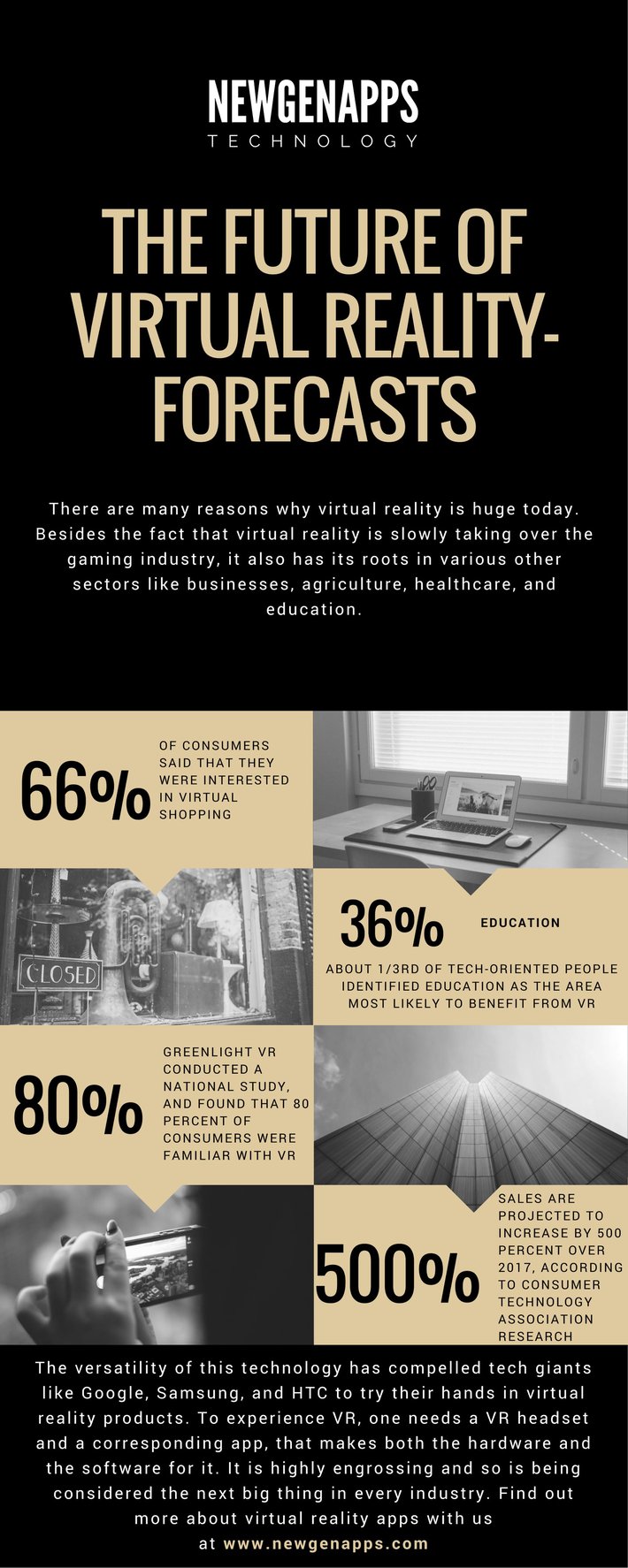
Virtual reality has a wide scope in enterprises to carry out their functions smoothly and effectively. It allows you to virtually be present at someplace without actually being there. Sphericam 2, a project with 360 degrees video cam, is being used in a myriad of sectors including filmmaking, journalism, real estate and businesses. VR can be used in training and interviewing candidates, making it a virtual conference room, to see their body language and reactions as if it was real. Also, business travels would reduce to a greater extent.
Once VR gets mainstream, ventures will be able to save their travel costs and most importantly, their time. Instead of moving to another place, managers will conduct meetings effectively sitting in their cabins itself - as put by Prof. Perlin from NYU, “Of course we’re going to embrace any technology that makes us feel more connected.” in an article published by The Wall Street Journal last year.
Virtual Reality undoubtedly will have a larger role in industries and their functioning.
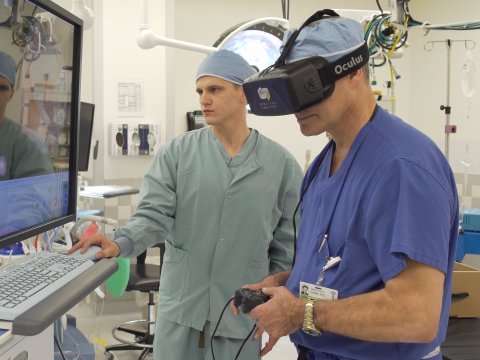
Virtual reality is used in many sectors of healthcare, by paramedics and doctors, to treat the most chronic diseases with ease. It is being employed in medical training and education of health professionals where they can perform hands-on procedures in a virtual environment with controlled settings.
In a report by Forbes on how virtual reality may change medical education, Spio, a former aerospace engineer, proclaims, “I think that it’s going to be instrumental in the training and education of not just health care workers and medical professionals, but also patient education.”
Must Read: Mixed Reality- A blend of Augmented Reality and Virtual Reality
Software engineers view software on small 2D monitors and they mainly interact with the source code using a mouse and a keyboard. This interaction between the programmer and the software does not take advantage of many affordances of natural human perception and movement.
Virtual reality, on the other hand, creates new opportunities by using these affordances to completely modify the existing programming structure and ultimately result in lower learning curves, higher productivity and increased user satisfaction. Software industry would largely benefit if they were able to work with VR technology. Rather than being limited to two-dimensional environment, VR enables engineers to be fully hemmed in a 3D workspace and it offers more freedom in terms of movement and real life situations that make the user interaction more familiar than the traditional old keyboard and mouse.
Few software have already been developed, one being Unreal. It is a suite for developers who can use it to create virtual reality environments and games. The tool gives architects and engineers a powerful toolset to build and design in a VR space. It is being frequently used to render architectural models and visualise spaces in immersive environments. Microsoft Hololens is yet another concept that's going to be next big thing soon. Similarly, Myo and Olarama allows users to use gesture control and incorporate smell experience in VR.
Read more: 8 Unconventional Applications of Virtual Reality & Augmented Reality [Insights from Experts]
If you feel your business can benefit by having a VR app or are looking to develop a consumer VR app, get in touch.
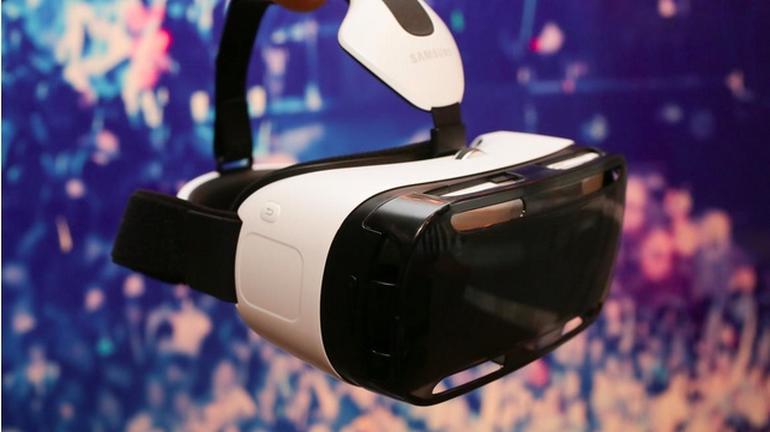
As we know that we are living in an environment where technology is upgrading and introducing new things every day. Virtual reality is one of the new...
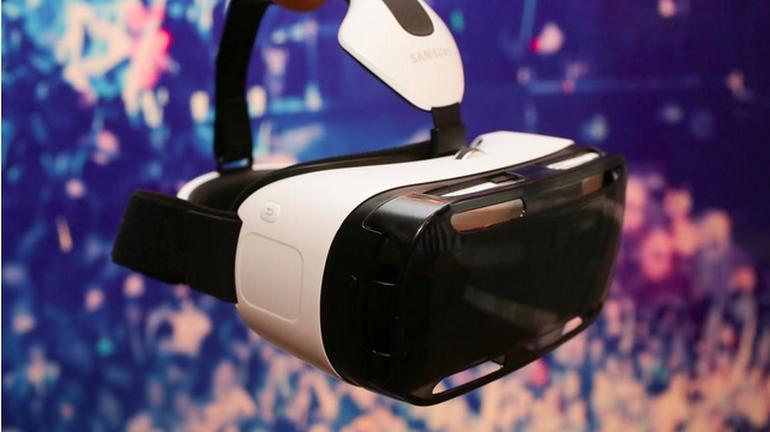
Virtual Reality usually refers to a specific type of reality emulation perceived and processed by our brains to ensure that we have a rich flow of...
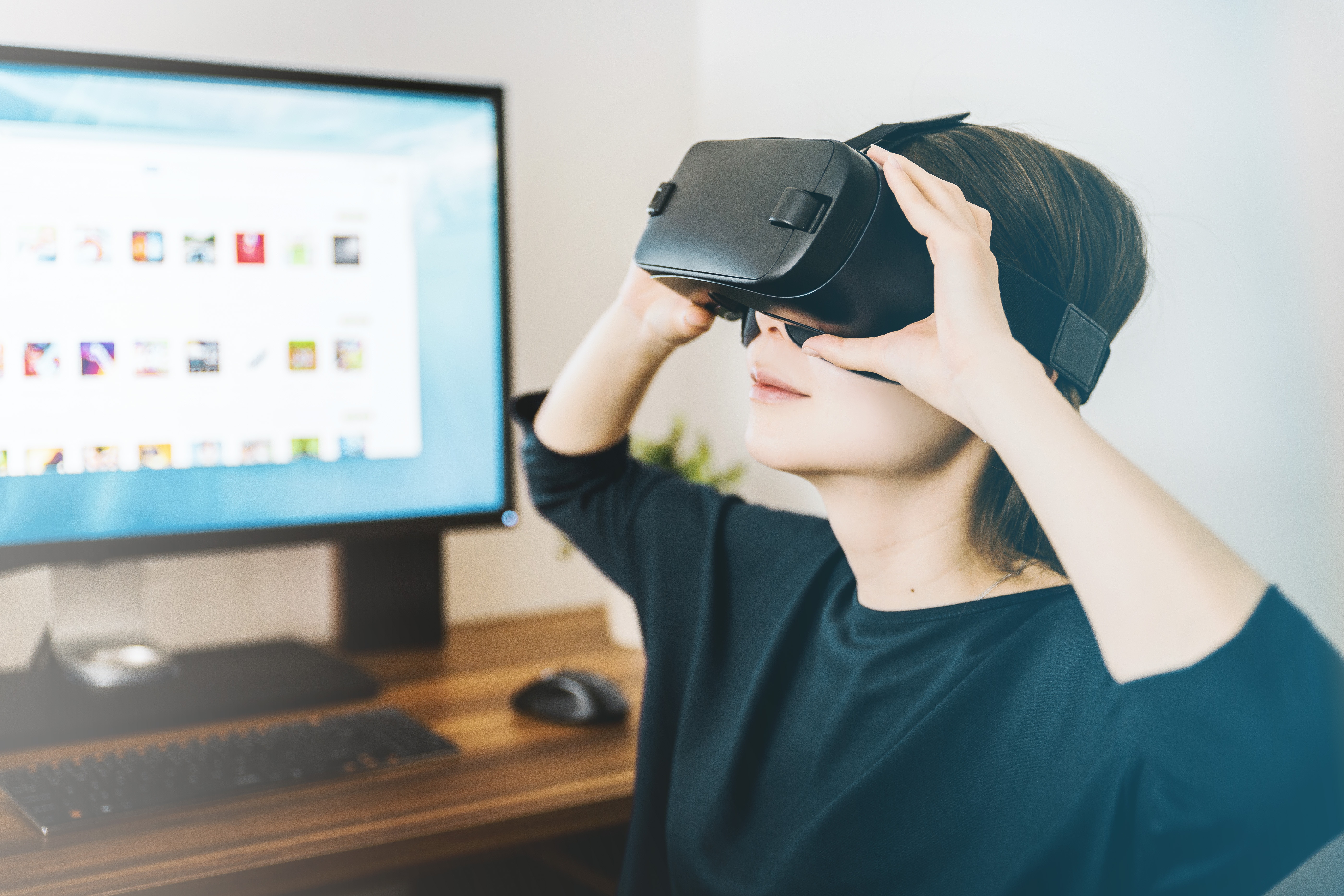
Last 2017 was a special time for browsers that supported WebVR standards. We actually saw giants like Amazon jumping in the space with Sumerian that...